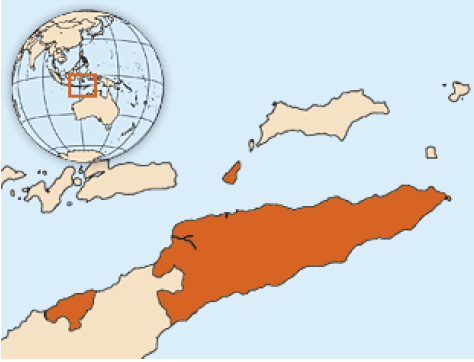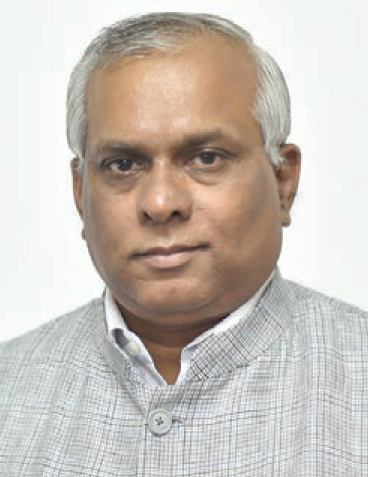Timor-Leste: a strong national food control system to ensure safe food consumption
On February 20th 2018, the Government of Timor-Leste officially became the 188th Member of the Codex Alimentarius Commission.
Dr Rajesh Pandav is the WHO Representative to the Democratic Republic of Timor-Leste and he explained to Codex what finally convinced Timor-Leste to join the Codex Alimentarius Commission.
A strong national food control system will play a critical role in ensuring safe food consumption.

The government feels that a strong national food control system will play a critical role in ensuring safe food consumption, protecting consumer health, and facilitating good trade practices towards achieving successful human and economic development. The WHO Country Office had been advocating Timor-Leste to join Codex Alimentarius Commission since 2012, “as it is a net food importing country and they have no legal framework for food safety and food standards which may result in them becoming a dumping site for sub-standard food and food products,” said Dr Pandav.
WHO facilitated the participation of Timor-Leste in the CCASIA meeting in New Delhi in September 2017 as an observer so that the government official could really understand the importance of Codex standards and their impact on trade, import, export of food and food products.
“Political instability, doubts regarding the benefits of joining an international organization, signing international agreementa and slow decision making processes were major challenges,” added Pandav. Finally WHO was able to convince the Health Minister of Timor-Leste to present their application.
Why is their membership important?

Timor-Leste is a new independent country with limited technical and human resources. There is lack of awareness on how contaminated food can cause adverse health effects such as gastro-intestinal illness and diarrhea. Timor-Leste is part of “Zero Hunger Challenge” initiative promoted by FAO. Food security and malnutrition are a big challenge and the country recognizes the government responsibility to ensure the availability of safe, quality and nutritious food to the public using Codex standards, guidelines and recommendations.
What are the main food safety challenges in the country from the WHO perspective?
The local food suppliers have little food safety training and food safety and quality monitoring programmes are practically non-existent. There is high rate of chronic malnutrition, stunting and under-nutrition. The country has become a dumping site for sub-standard food and food products in the absence of food standards and National food control System. It is usual to see confiscation of expired food products from local market due to weak food import regulation and lack of consumer awareness and poverty. The major challenges are the development of an appropriate legal framework; setting national food standards; promoting multisectoral collaboration for food safety, and establishing laboratory and risk-based food inspection system as a part of National Food Control System.
How will WHO be supporting Timor-Leste as they begin to participate in Codex?
WHO will be supporting a technical orientation workshop on Codex for national stakeholders in April and providing support to the government to establish a functional National Codex Committee, which will in turn develop a Food Act and Food Standards based on research and taking into consideration feedback from all key national stakeholders as well as experiences from neighboring countries. Timor-Leste is a country with limited technical capacity and resources for food safety where much needs to be done but resources are limited. Since Timor-Leste is a new Codex member, priority will be given to encourage and to facilitate submission of a project application to the Codex trust Fund. Necessary technical support will be provided to enhance food safety education, public awareness and consumer protection which may include basic food safety training for food processers, restaurants and other food handlers and a national food safety public awareness programme for consumers. Specific training based on the WHO five keys to safer food will be accessible to key food providers and handlers along the food chain.
Codex Contact Point
We are determined to join Codex to increase our active participation.
Dr Odete da Silva Viegas is Director General for Health Services Delivery at the Ministry of Health in Timor-Leste and will serve as the Codex Contact Point. Commenting on joining the Codex Alimentarius Commission, she said: “As a new country, Timor-Leste still needs to learn more about food security, and we are determined to join Codex to increase our active participation.”
Another major reason for joining is to sensitize the global community to the danger of food hazards as well as to the importance of food quality and hence to the need for food standards. Ms da Silva outlined how she sees Codex standards being used right across the spectrum from commodities to food labelling, food hygiene, additives, pesticide residues as well as procedures for assessing the safety of foods derived from modern biotechnology and import/export inspection and certification systems.
“Codex Standards will give opportunities to Timor-Leste as a developing country to improve public health, food security, and trade competitiveness in the future,” she said. Collaboration with all stakeholders is essential for a successful approach to Codex and the Ministry of Health will be working with other relevant ministries “because we consider that food safety is a shared responsibility”.
Technical assistance
All those involved in the application process agree that Timor-Leste still needs to learn more about food security and still needs technical assistance from all stakeholders, including WHO and FAO for the implementation of Codex Standards and also to establish a National System of Food Safety. “FAO will be pleased to work with Timor-Leste on issues of food safety and engaging in Codex standard-setting and implementation”, said FAO Assistant Director-General Ren Wang.
Learn more
Read more about WHO operations in Timor-Leste.
Learn more about Timor-Leste: FAO country profile.
Credits
Additional information: Gyanendra Gongal, WHO SEARO, Delhi
Photo credits WHO/SEARO
Categories
- (11)
- (3)
- Animal Feed (8)
- Antimicrobial Resistance (39)
- Antimicrobial Resistance (78)
- CAC46 (15)
- Codex Texts (20)
- Codex Trust Fund (1)
- Codex60 (19)
- Contaminants (13)
- Contaminants (10)
- COVID-19 (64)
- Elections (6)
- Food Safety (126)
- Labelling (10)
- Nutrition and Labelling (5)
- Nutrition and Labelling (7)
- Observers (23)
- Pesticides (7)
- Standards (78)
- World Food Safety Day (154)


